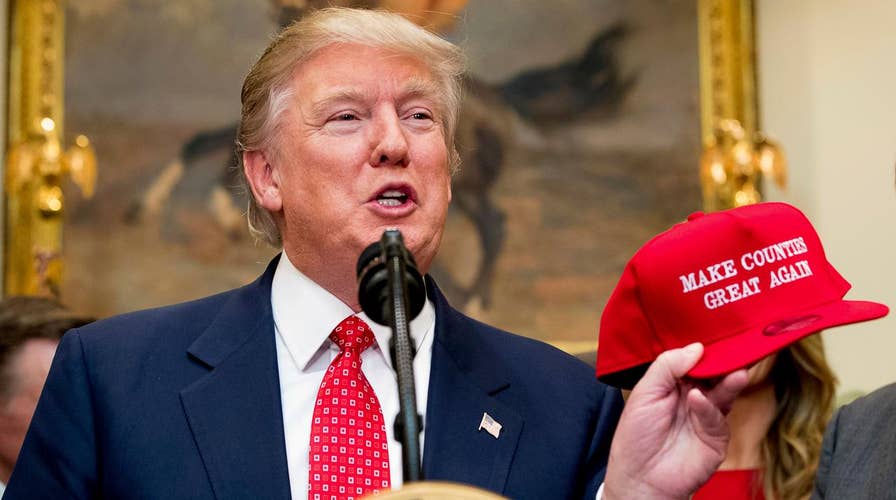Trump administration is proposing an 'America First' budget
Democrats, Republicans and former military officers are fighting against the substantial cuts to foreign aid; Rich Edson explains on 'Special Report'
With the recent announcement that the Trump administration is proposing slashing government spending by $54 billion, there are natural concerns over whether government agencies can continue to fulfill their missions and if there are more subversive agendas intended to undermine their existence.
Although our first reaction to such deep spending cuts is to presume that less will be done and services will suffer, psychological research on resourcefulness offers some hope that this doesn’t have to be the case.
Some of these agencies may even emerge from the cuts stronger and more effective.
That’s because when faced with constraints, it’s easier for people to find better ways to accomplish their goals and stretch the money, staff and other resources they have to get results.
Here are three reasons why limiting budgets doesn’t necessarily mean bad outcomes.
1. Less makes us more creative
We have a tendency to overestimate the resources we need to reach our goals, and underestimate our ability to do more with what’s already at hand. With abundant resources, we typically reach for the perfect tool to solve problems. In contrast, with scarcity, we have no choice but to make do with what we have. It opens up possibilities for novel solutions.
Research shows that simply reflecting about experiencing scarcity leads to more creative solutions. When people face scarcity, people give themselves a license to think about and use resources in less conventional ways. They break from following the scripts of past experience and applying common uses for resources. Studies show that if you ask someone to design or build a product, you might get some good ideas. But when you ask the same questions but impose a budget, you’ll get better results.
The proposed budget cuts can infuse creative vitality into some agencies that may be too routinized, conventional, or stale. The cuts could also spark new partnerships and a cross-pollination of ideas across complementary programs.
2. Slimming down releases us from over-commitment to failing projects
With an abundance of people and money, we tend to engage projects sloppily or with carelessness in ways that harm innovation.
In one study, a team of researchers at Harvard University examined department managers to identify how well improvements were made in key areas such as streamlining work procedures. They then measured the slack, or additional resources, the departments had but did not really need. What they found is that departments with too many spare resources became less likely to improve. In fact, departments with the highest amount of extra resources got as equally poor results as those with no spare resources.
Even when projects start failing due to the inefficiencies created by being over-resourced, it’s hard to suspend them. This tendency to continue throwing good money after bad ideas is called escalation of commitment. Once programs are established, people have their reputations, careers, and personal commitment at stake. They’re likely to continue fighting for resources to keep them going, even if more promising options for those resources becomes available.
Here’s a potential benefit to the proposed cuts: We become more disciplined. With fewer resources around, people are forced to make choices and spend more effort prioritizing the most pressing needs. They also grant themselves permission to terminate ineffective projects, blaming the end of the project on budget cuts and not its ineffectiveness.
3. Reassess the mission
All too often, the budgeting process follows a simple but misguided axiom: after making sure all of last year’s funds were spent, ask for a little more the following year. Anchoring to previous years overlooks the needs of changing times. It also invokes a dangerous way of keeping score. Success becomes based on the size of the budget, not the work being done.
This makes it easier to forget what the mission is – it’s not to get more. It’s to do more to help provide critical services and maximize the impact of the agency. The upside: sometimes it takes a crisis to remind people of the stakes.
There is no question that there can be legitimate hazards of gutting government. Putting aside the political motivations for these leaner times leads us to consider if government can do more in such seemingly difficult circumstances.
If approached thoughtfully, and with a willingness to find ways to make government work better, it is possible to harness the resourcefulness, commitment and ingenuity of the professionals who do a great service for our country.
By using the psychology of resourcefulness, we can take something positive from this at-first glance negative turn of events by making more out of less.





















